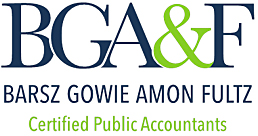If you work for yourself or are a sole proprietor, it’s generally well-known that you’re required to pay self-employment taxes. However, the scope of self-employment extends far beyond these obvious scenarios. For tax purposes, being self-employed can mean more than just managing your own business. It can include freelance earnings or even your share of income from a partnership.
A recent legal twist has further expanded the spectrum of self-employment taxes. Combined with the surge in gig work and side hustles, many people now find themselves subject to these taxes.
So, let’s delve into this recent legal shift and explore some of the less obvious scenarios that might trigger self-employment taxes so you can steer clear of potential penalties.
A new take for limited partners
In late November 2023, the U.S. Tax Court brought new attention to self-employment taxes and how they apply to limited partners in Soroban Capital Partners v. Commissioner. Traditionally, limited partners were mostly exempt from these taxes. The common view was that limited partners earned passive income, like an investment, instead of employment income.
However, the Tax Court’s recent decision means that partners can no longer sidestep self-employment taxes just because they call themselves a limited partner. Going forward, the IRS and the Tax Court will take a deeper look at the role and function of each limited partner to determine how they should be taxed. The Court noted that self-employment taxes revolve around what the partner does more than what they call themselves. If a limited partner is actively involved in running the business, they’re probably not exempt from these taxes. While the Court didn’t specify what they meant by an “active role in the business,” it likely means those involved in daily operations or decision-making will need to pay self-employment taxes.
It’s also worth noting that the IRS has been increasing its audits on partnerships. This latest Tax Court decision might hint at a trend where partnerships could see more audits and tax assessments in the future.
For limited partners, especially those involved in multiple partnerships, you may need to pay self-employment taxes or reassess your role in the partnership. If you’re considering a limited partnership role, you should also consult with a tax advisor to ensure you’re safeguarded against unexpected tax liabilities.
Vast Scope of Self-Employment Taxes
Limited partners aren’t the only taxpayers who may face unexpected self-employment taxes. In fact, there are many everyday activities that might nudge you into the self-employment zone.
The basic rule seems straightforward: if you earn more than $400 a year outside of regular W2 wages, you could be responsible for self-employment taxes. But the types of activities considered self-employment for tax purposes are not always obvious.
For instance, you should consider whether your hobbies are inching toward a business. Are you selling homemade treats or turning a profit from flipping vintage finds? How about your creative pursuits? If you design logos, write copy, or sell your photography skills, you’re likely in the self-employed bracket.
The gig economy has further blurred these lines. Driving for a rideshare service, delivering meals, or renting out your spare room can tip you into self-employment tax territory. If you’re dabbling in the short-term rental market and providing more than just a place to stay – like offering breakfast or local tours – that extra effort might open the door to self-employment taxes. The more property owners try to create a hotel-like experience for their guests, the more likely the IRS will treat their business like a hotel.
And it’s not just cash payments that count. Income received in kind, like a high-value item in exchange for work, is taxable. Likewise, if you receive contributions from certain types of crowdfunding, that’s also taxable. In both situations, you could be subject to self-employment taxes if the exchange is part of a business or trade. For instance, if you repair computers for a living and decide to repair a friend’s computer in exchange for a high-value bicycle or you pre-sell products on a site like Kickstarter, it could be considered self-employment income.
The bottom line is that many paths lead to self-employment tax. If you’re engaging in these activities or earning an income outside of regular W2 employment, it’s worth discussing with a tax pro to ensure you’re paying the right taxes.
Consult with a Tax Preparer
Self-employment taxes can be tricky. If you have a role in a partnership, different income streams, or various gigs, you may need to assess your tax situation. It’s not just about knowing the tax rules; it’s about understanding how they apply to your unique mix of income.
If you’re unsure whether you should be paying these taxes, we can provide tailored advice. We’ll ensure you’re meeting your tax obligations without missing out on opportunities to improve your financial position. For personalized guidance, please don’t hesitate to contact us.
